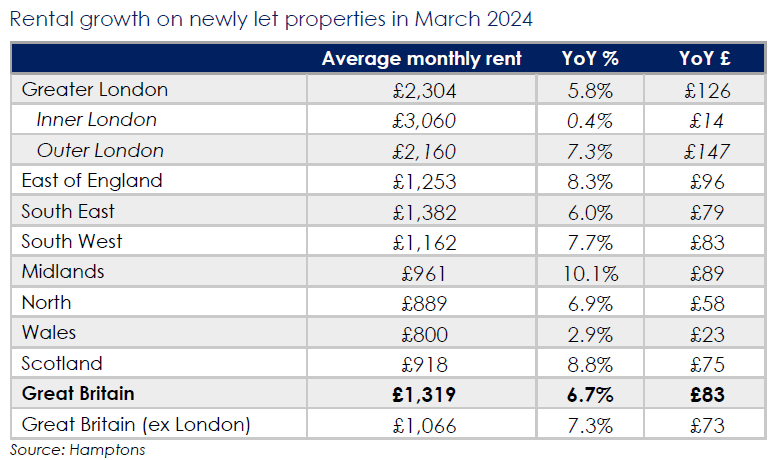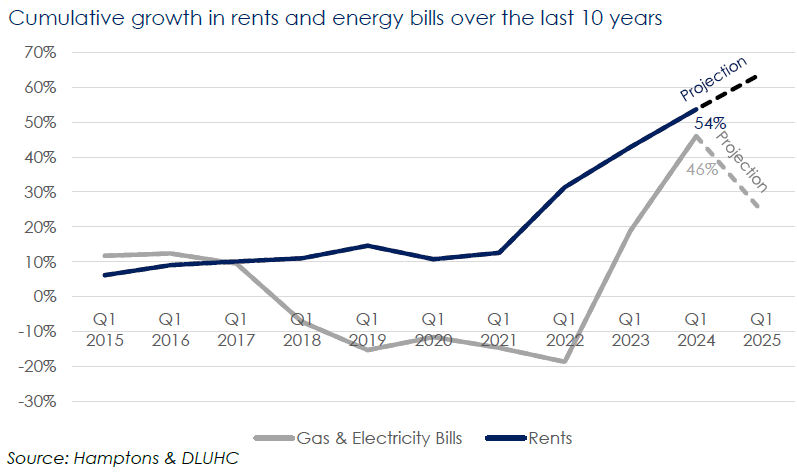Tenants' energy bills match an additional month's rent annually

Rental growth in Great Britain has slowed, according to residential estate agent Hamptons, with the average price of a newly let property increasing by 6.7% over the past year – a significant drop from the 12% peak in August 2023.
Despite this slowdown, rental prices remain 31% higher than before the pandemic, particularly in the North West, where prices have surged 42% above pre-pandemic levels.
For the first time, the average rental cost in the West Midlands exceeded £1,000 per month, making it the first region outside the South of England to reach this threshold. It also remains the only area in Great Britain where rental growth continues at a double-digit rate.
In contrast, Inner London saw the smallest increase in rental prices, with a mere 0.4% rise over the past 12 months and an overall 17% increase since the pandemic began. This region has experienced the fastest slowdown in rental price growth across the country.

Hamptons also reported that tenants’ energy bills reached a seven-year high last month, equating to an additional month’s rent annually. This peak is anticipated to decline following a 12% reduction in the energy price cap starting April 1, with further decreases expected in June.
Over the past decade, rental prices have increased by 54%, while energy bills have risen by 46%. Currently, tenants are paying nearly £5,993 more annually in rent and energy bills compared to 10 years ago.

“During the last two years, tenants have found themselves squeezed financially from all sides,” said Aneisha Beveridge (pictured), head of research at Hamptons. “While their ability to afford the rent is typically tested when they move into a new home, increases in rents have come alongside big hikes in energy and food bills. Even though increases in these costs are slowing and, in some cases, reversing as inflation nears its 2% target, living costs remain much higher than two years ago.
“In the short term at least, falling energy prices are likely to see the issue drop down the political agenda. Therefore, minimum EPC standards for rented homes look unlikely to be introduced by the current government. But with a potential change of government, in the medium-term, landlords might see renewed pressure to make the homes they’re renting out more energy efficient.
“When the number of rental homes on the market is up 30% on last year and the number of potential tenants is down by a fifth, rents would normally be falling. But these year-on-year comparisons mask the longer-term picture, where supply is down and demand is up. While rental growth has slowed from record levels, as more landlords roll off cheaper fixed-term deals, rents are still creeping upwards. In most places outside central London, landlords are still achieving record rents on the back of long-term tax and interest rate pressures.”
Want to be regularly updated with mortgage news and features? Get exclusive interviews, breaking news, and industry events in your inbox – subscribe to our FREE daily newsletter. You can also follow us on Facebook, X (formerly Twitter), and LinkedIn.



